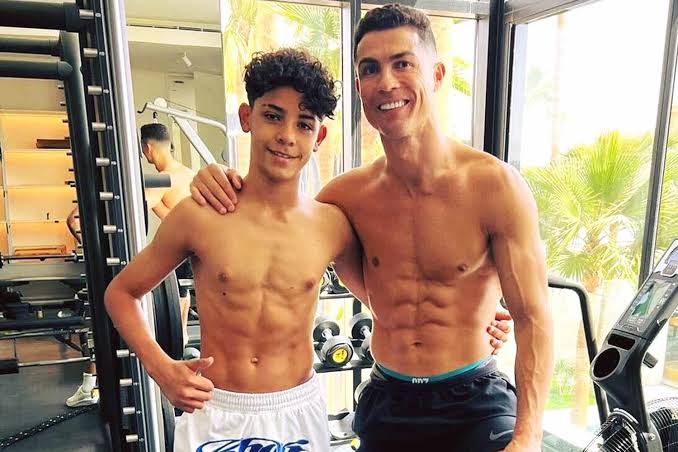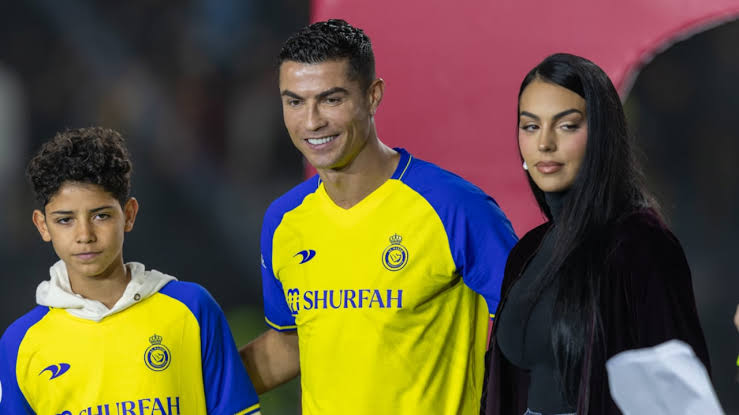Romanian great Adrian Mutu has shared his thoughts on why Cristiano Ronaldo wants to keep playing football into his forties, Soccernet.football reports.
Mutu, a former Juventus and Chelsea star, believes Ronaldo’s main motivation is to play an official match with his son, Cristiano Ronaldo Jr., before retiring.
Ronaldo, who remains in excellent physical shape, was slower and less effective at the European Championship in Germany where Portugal were eliminated in the quarterfinals.
Despite this, he shows no signs of wanting to stop playing. Mutu discussed this on the iAMsport.ro iAM Stucan podcast, as per Origo.

“Ronaldo does not want to retire until he has played alongside his son Cristiano Jr,” Mutu said.
“This is his true motivation, he will not stop until he has played at least one official match for his son’s side. And in the Al-Nassr team, this opportunity was given to him. It is clear that this matter would be much more difficult to solve in a team of Real Madrid’s level.”
However, there are challenges even in the Saudi league.
Ronaldo Jr. turned 14 in June, while Ronaldo Sr. has just a one-year contract with Al-Nassr.
Although Ronaldo is a huge star, Al-Nassr expects him to perform well since he was brought in to help the team win and entertain the fans.
Ronaldo’s star power has significantly boosted the Saudi league’s profile, and he might continue getting one-year contracts until his son is ready to play in the senior league.
Cristiano Jr. is currently training with Al-Nassr’s youth team, having previously trained at Juventus and Manchester United academies.
This situation mirrors that of NBA star LeBron James. James, 40, also previously expressed a desire to play with his son, Bronny James, in the NBA. LeBron has finally gotten his wish as he used his influence to help Bronny, 20, get picked by the Los Angeles Lakers during the draft.
Cristiano Jr. will need about three more years before he can join Al Nassr’s senior team, making him 17 at the time. It remains to be seen if Al-Nassr will keep Ronaldo on until then and pay his substantial salary.



















